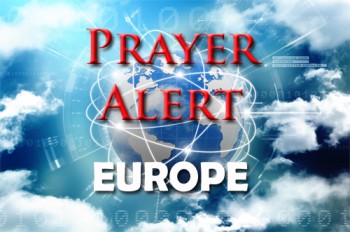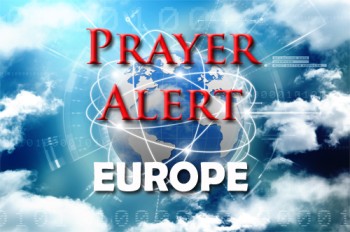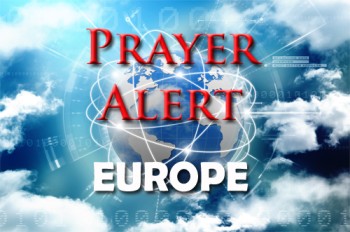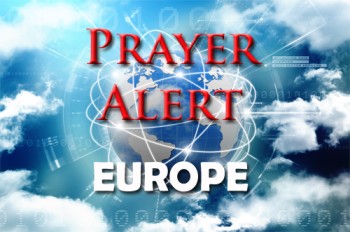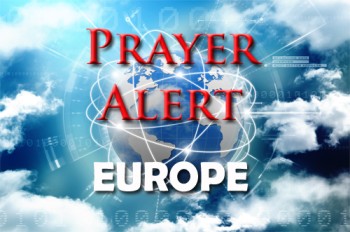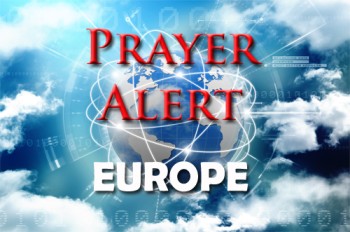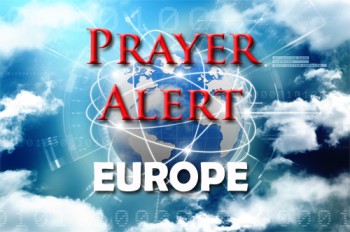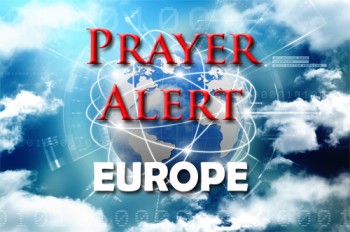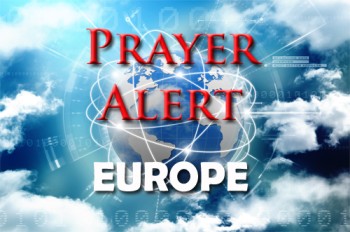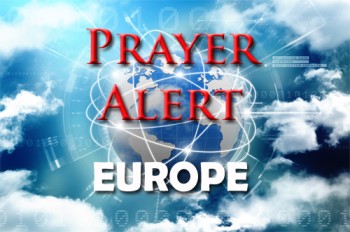Displaying items by tag: Europe
Finland: Christian MP prosecuted for her beliefs
Parliament member Päivi Räsänen faces six years in prison for sharing her biblical beliefs on sexuality and marriage. Lutheran bishop Juhana Pohjola was charged with one count of ethnic agitation for publishing Räsänen’s booklet. Finish prosecutors said Räsänen’s statements disparage and discriminate against LGBT individuals and foment intolerance and defamation. The mother of five maintains her expressions are legal and should not be censored. ‘I cannot accept that voicing my religious beliefs could mean imprisonment. I do not consider myself guilty of threatening, slandering or insulting anyone. My statements were based on the Bible’s teachings on marriage and sexuality.’ Six members of Congress have condemned Finland for prosecuting Räsänen, and said the USA should consider these prosecutions when advising on countries placed on a watch list of countries engaging in religious freedom violations.
Russian preparations to attack Ukraine?
Russia has over 92,000 troops massed around Ukraine’s borders and is preparing for an attack by the end of January or beginning of February, said the head of Ukraine’s defense intelligence agency, Brig Gen Kyrylo Budanov. He said that an attack would likely involve airstrikes, artillery and armour attacks followed by airborne assaults in the east, amphibious assaults in Odessa and Mariupul, and a smaller incursion through neighboring Belarus. Russia’s large-scale Zapad 21 military exercise earlier this year proved they can drop more than 3,500 airborne and special operations troops at once. America’s defence secretary Lloyd Austin said, ‘The USA continues to see troubling Russian behaviour. We are not sure what Mr Putin is up to, but these movements certainly have our attention. I would urge Russia to be more transparent, and to take steps to live up to the Minsk agreements. Our support for Ukraine sovereignty and territorial integrity remains unwavering.’
Polish PM holds talks in Europe on border crisis
Last weekend Polish prime minister Mateusz Morawiecki met his counterparts from Lithuania, Latvia, and Estonia, also hit by migrant pressure in recent months. During the week he has travelled to other European countries, which he did not name. Morawiecki said on Facebook that it is a ‘very serious geopolitical situation’ which requires a lot of diplomatic effort as many migrants remain in Belarus and continue attempting to enter Poland. ‘This is why I set out on a journey to other European countries, to talk about the international crisis provoked by the actions of Alexander Lukashenko. Unfortunately, there are numerous signs suggesting that this geopolitical crisis will continue for many months, even years’, Morawiecki said. Poland is pushing the migrants back to protect the border for all of Europe and has received words of support from the EU, NATO and the USA.
Europe is locking down
Europe has become seriously affected by the pandemic, and several countries are introducing restrictions amid rising cases. Two million Austrians not fully vaccinated are in lockdown as Covid-19 surges. Germany's Covid cases hit 65,371 and Angela Merkel said a fourth wave of Covid is ‘hitting us with full force’. New restrictions are expected. Holland’s ‘lockdown-lite’ measures are imposed to limit social contacts after a sharp infection increase. The measures include closing restaurants and shops early, and barring spectators from sporting events. Vaccination rates are significantly lower in some eastern European nations. Latvia has re-imposed a lockdown, Russians have shut shops, restaurants and schools in a partial lockdown and workers had nine days’ paid holiday to curb infections. The UK, with one of the highest infection rates, has yet to reintroduce restrictions.
Belarus / Poland: border crisis
On 17 November Belarus provided temporary shelter for 1,000 freezing hungry migrants camping on its border with Poland, wanting to enter the EU. For months, thousands of men, women and children have been amassing at Belarus's western borders. Belarus has been accused of pushing migrants, mostly from Iraq, to the border to destabilise the EU. Belarus's long-time authoritarian leader, Alexander Lukashenko, has denied luring migrants to the border in revenge for EU sanctions. Iraqi Airways confirmed it would send a plane to Belarus on 18 December to take its citizens home. The EU has asked Middle Eastern countries to stop flights to Belarus; several have agreed. Poland, with EU backing, is determined not to let the migrants into the bloc and warned that the border and humanitarian crisis may go on for months. The situation will not be resolved quickly. See also
Greece: espionage trial of aid workers
Syrian refugee and aid worker Yusra Mardini went on trial on 18 November with over two dozen other aid workers from various countries, for helping migrants reach Greece between 2016 and 2018. The defendants face charges including forgery, espionage, and the unlawful use of radio frequencies. Human rights groups have condemned the trial as being politically motivated; Amnesty International called the charges ‘farcical’ and said they should never have come to trial. If found guilty, the aid workers could face five-year prison sentences. Some remain under investigation for a number of other felonies, including human smuggling, which could lead to further sentences of up to 25 years. Irishman Sean Binder said, ‘I am happy to defend myself; I know I did nothing wrong, and we can prove that. I am charged with crimes that I am supposed to have committed a year before I was ever on Lesbos.’ STOP PRESS: the trial has been suspended, but will now be heard by an appeal court.
Poland: humanitarian crisis unfolding at border zone
Kasia Wappa lives by Poland’s national park where a humanitarian crisis is unfolding on a scale not seen since World War 2. She is part of a network trying to save emaciated Middle Eastern immigrants who have been emerging from the wilderness since September. Most had spent days without food or water and were suffering from hypothermia and exhaustion. Some were sick from drinking swamp water. Kasia began by donating warm clothes, and now helps rescue parties retrieve lost and starving people from the woods. But the flow of migrants has increased, and she warns that many probably never make it. Ten deaths have been confirmed, and they have rescued many on the verge of dying. The Polish government has built a three-kilometre deep security cordon the length of its Belarus border to curb illegal immigration. All reporters are banned, creating a media blackout to hide the scale of the crisis. Rescuers now behave like insurgents, operating at night and evading police patrols.
Finland: Christian charity cuts ties with Palestinian NGO
FELM, a Finnish Christian missionary group, has cut ties with Palestinian children's rights NGO Defence for Children International-Palestine. Mr Stefansson, the charity's executive director, said they had concerns about possible banking sanctions of DCIP who are one of six Palestinian groups accused by Israel of channelling donor aid to militants and labelled as a terrorist organisation. The six accused groups have close ties to the Popular Front for the Liberation of Palestine, which carries out deadly attacks on Israelis and is on US and EU terrorism blacklists. DCIP rejects the charge and says it has asked FELM to reconsider cutting funds. Steffansson said it is impossible to maintain ties with the group as, ‘It could have impacted the work we do in 30 countries through banking services.’ DCIP relies on European aid to fund its advocacy and rights monitoring work in the Israeli-occupied West Bank and Gaza.
Germany: Ahr valley region reconstruction
The flood disaster in the Ahr valley was three months ago. Much has been achieved but reconstruction will take a long time. Many houses had to be demolished and over thirty may not be rebuilt. Houses that could remain standing have been completely cleared and left empty to dry out. Large parts of the natural gas network were destroyed, and many oil heating systems in the affected houses no longer work. The government is working flat out to find solutions to the problems and to be prepared for the upcoming winter - including providing mobile gas supply systems and oil tanks, the use of mini-power plants and the purchase of a Tiny House for residents who need accommodation for the winter due to a lack of heating. The electrical power supply has not yet been completely restored and there is a lack of craftsmen and building materials for the renovation and reconstruction work. See
Italy: G20 - climate and Covid
When the G20 leaders met in Rome last weekend, at their first face to face meeting since the pandemic started, climate change and Covid were on the agenda. The talks come amid increasingly dire warnings for the future if urgent action is not taken to cut emissions. The G20 group of countries and the EU account for 80% of the world's carbon dioxide emissions. According to Reuters, a draft communiqué outlined a promise from the G20 to work towards limiting the rise in temperatures to 1.5C, saying it ‘will require meaningful and effective actions by all countries’. Covid vaccine equality is also on many leaders' minds. Italy’s prime minister said that just 3% of the six billion Covid vaccines administered worldwide had gone to the poorest countries, which was ‘morally unacceptable’. He called fellow leaders to do ‘all we can’ to vaccinate 70% of the world's population by the middle of 2022.
